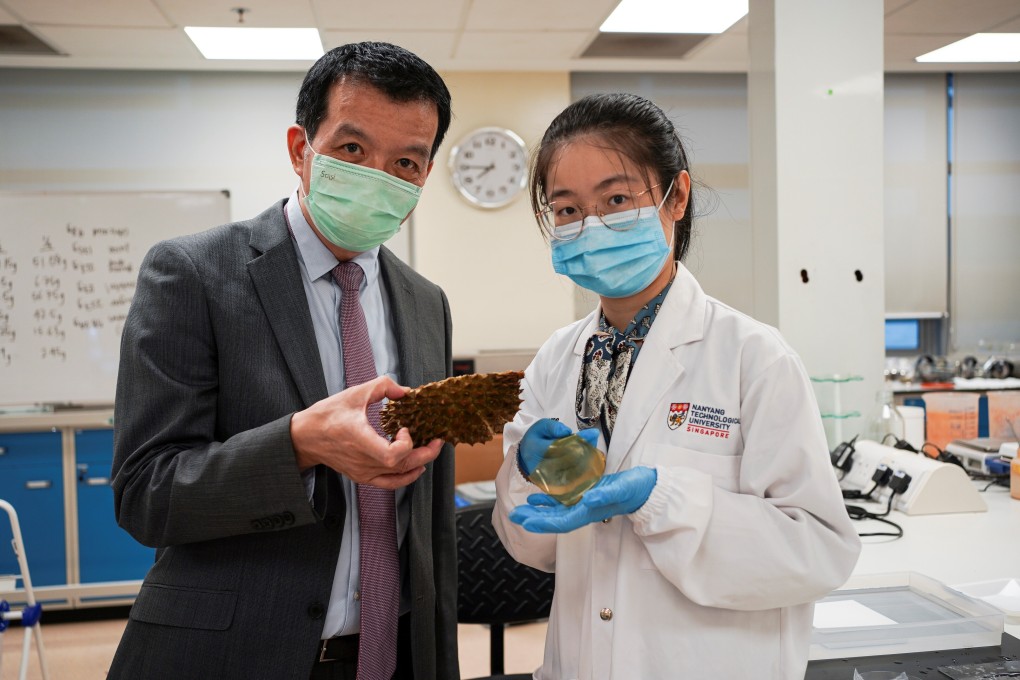Singapore scientists turn discarded durian husks into antibacterial bandages
- A soft hydrogel for the bandages is made by mixing glycerol with cellulose powder extracted from the husks after they are sliced and freeze-dried
- The researchers say using waste materials and yeast for the antimicrobial bandages is more cost effective than the production of conventional ones

The process extracts cellulose powder from the husks after they are sliced and freeze-dried, then mixes it with glycerol. This mixture becomes soft hydrogel, which is then cut into bandage strips.
“In Singapore, we consume about 12 million durians a year, so besides the flesh, we can’t do much about the husk and the seeds and this cause environmental pollution,” said Professor William Chen, director of the food science and technology programme at the university. The fruit’s husks, which make up more than half of the composition of durians, are usually discarded and incinerated, contributing to environmental waste.

Chen added that the technology can also turn other food waste, such as soy beans and spent grains, into hydrogel, helping limit the country’s food waste.
Compared to conventional bandages, the organo-hydrogel bandages are also able to keep wound areas cooler and moist, which can help accelerate healing.